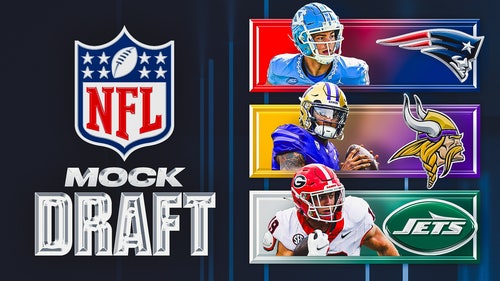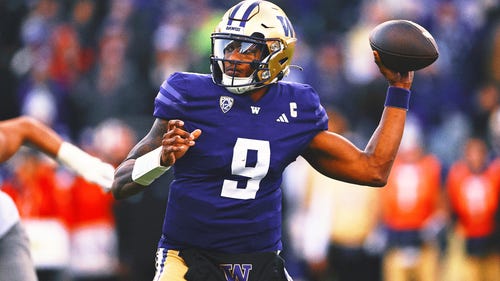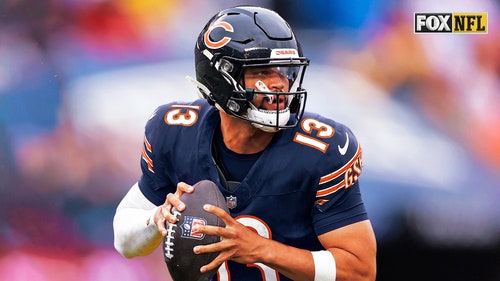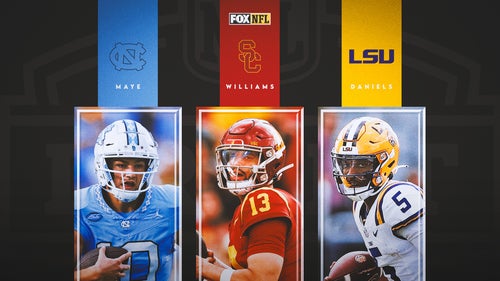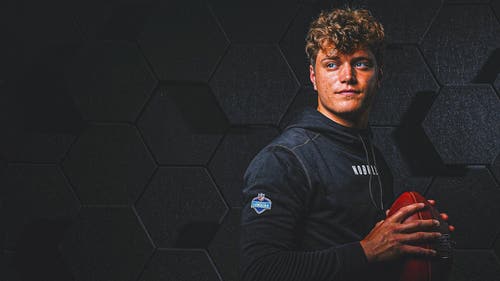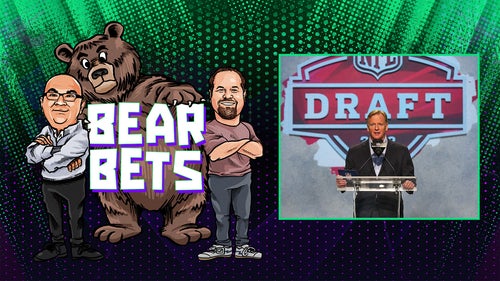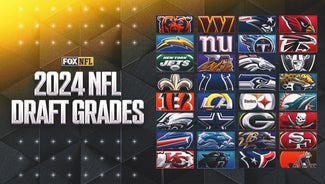
Doping expert supports HGH blood test
One of the world's leading experts on performance-enhancing substances in sports said NFL players have no excuses when it comes to consent for human growth hormone testing.
Dr. Gary Wadler, who has worked closely with both the World Anti-Doping Agency and White House Office of Natural Drug Control Policy, lauded the league's decision to make HGH testing mandatory as part of its labor proposal to the NFL Players Association. Wadler also said any protests from athletes about the blood work required to conduct the test "border on the nonsensical."
"I'd be very disappointed if the NFL does not get in lock with the rest of the world -- and this goes for (Major League) baseball as well -- and employ blood testing," Wadler said Friday. "Any concerns the athletes have of a needle ... It's almost comical to think a 300-pound athlete is afraid of a little needle prick.
"And let's remind everybody that there isn't an athlete who doesn't go to a doctor to get their blood taken now and then. It does not interfere with their performance."
As first reported by FOXSports.com, the NFL is insisting upon HGH testing as part of a new Collective Bargaining Agreement with its players. The NFLPA hasn't taken a definitive stance on HGH testing other than saying it was subject to negotiation as part of a new CBA.
Former NFLPA executive director Gene Upshaw was vehemently opposed to blood testing for HGH, which is the only effective method for detection.
"No one is interested in a blood test," said Upshaw, who died in 2008. "We've got a lot of big tough guys, but even they don’t like to be pricked on the finger to give blood.”
Ex-NFL tight end Mark Bruener echoed that sentiment last year in a Washington Post interview. Bruner called the process "extremely invasive ... We have one of the most aggressive, productive drug-testing policies in all of sports. To go to that extreme, I'm not sure that's good for the health of an athlete."
Wadler said he doesn't he believe an effective HGH urine test will ever be developed. The NFL conducts roughly 26,000 urine tests a year for performance-enhancing and recreational drugs, although the current program is suspended because of the league's lockout of players in a labor dispute.
"Blood testing is an essential part of any meaningful, elite drug-testing protocol," Wadler said. "I testified to that effect in 2005 before Congress. I believed it then; I believe it now. Anything short of that leaves a gaping hole in drug testing."
Potential HGH benefits include quicker recovery time from injuries, increased muscle mass and loss of body fat. Diabetes, loss of stamina, and growth of extremities like hands and feet as well as other body parts are potential side effects.
HGH is currently banned under the NFL's drug-testing policy but players are only subject to discipline if caught using the substance through other means besides testing. Last year, ex-Washington Redskins wide receiver Santana Moss was linked to a Canadian doctor charged with illegally distributing HGH and other performance-enhancing substances to professional athletes. The NFL hasn't announced any discipline against Moss, who has declined comment on the situation.
HGH is difficult to detect even with blood testing because it can leave the body "within a few days," Wadler said. HGH testing was implemented at the 2004 Olympic Games but no athlete has tested positive during competition.
In recent years, two NFL players (tackle Jon Jansen and running back Earnest Graham) have said they believe a sizeable number of NFL players are using HGH. Ex-safety Rodney Harrison was suspended for four games in 2007 after reportedly admitting to HGH use for quicker recovery time from injuries. Harrison's name had surfaced as part of an investigation into an internet drug scam.
"I want to make it clear that not once did I ever use steroids," Harrison said in a news conference call after his suspension was announced. "I did admit to the commissioner (Roger Goodell) that I did use a banned substance. My purpose was never to gain a competitive edge. Rather, my use was solely for the purpose of accelerating the healing process from injuries I sustained."
Adolpho Birch, who oversees the NFL's drug-testing program as the league's senior vice president of law and labor policy, told FOXSports.com that the league believes HGH testing is "necessary" and "we're going to insure that it's done."
"That's something very important to us and the integrity of our game," Birch said. "We believe some of the basis for going slowly on it before has been addressed. At this point, it's proper for it to be an active part of our program."
Labor negotiations have stalled in CBA talks between the NFL and NFLPA, leading to the league's first work stoppage since 1987. Talks aren't expected to resume until after April 6 when a Minnesota judge hears the request for an injunction to lift the lockout as part of an antitrust lawsuit filed by 10 players against the NFL.
Major League Baseball players aren't tested for HGH although minor-league players are after a policy was implemented last July. The NBA and NHL don't test for HGH. The first failed HGH test by a North American athlete came last fall in Canada.






































































































































